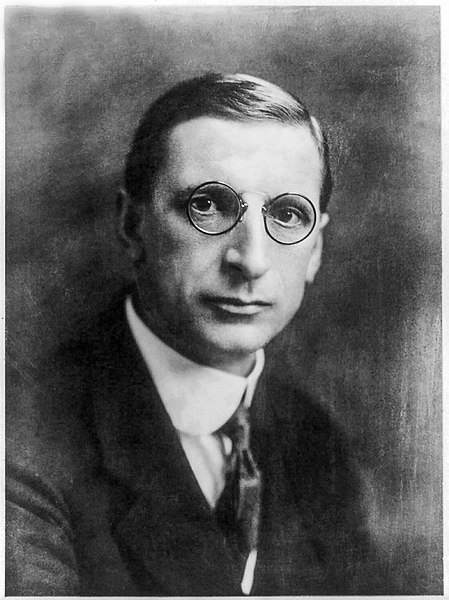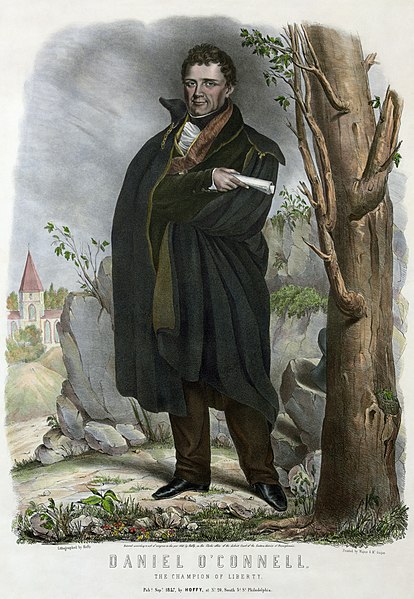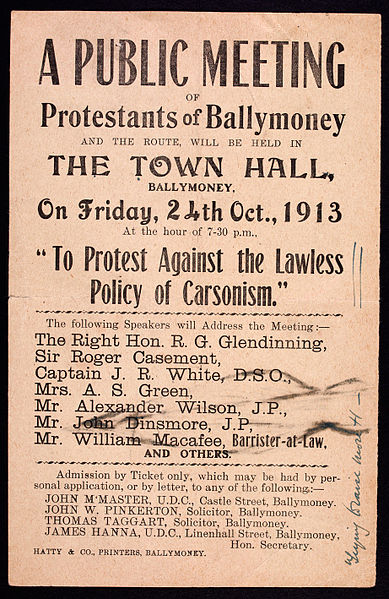The Irish Volunteers, also known as the Irish Volunteer Force or the Irish Volunteer Army, was a paramilitary organisation established in 1913 by nationalists and republicans in Ireland. It was ostensibly formed in response to the formation of its Irish unionist/loyalist counterpart the Ulster Volunteers in 1912, and its declared primary aim was "to secure and maintain the rights and liberties common to the whole people of Ireland". Its ranks included members of the Conradh na Gaeilge, Ancient Order of Hibernians, Sinn Féin and the Irish Republican Brotherhood. Increasing rapidly to a strength of nearly 200,000 by mid-1914, it split in September of that year over John Redmond's support for the British war effort during World War I, with the smaller group opposed to Redmond's decision retaining the name "Irish Volunteers".
An Irish Volunteer atop a memorial to the Irish War of Independence in Dublin by Leo Broe
Éamon de Valera.
Irish nationalism is a nationalist political movement which, in its broadest sense, asserts that the people of Ireland should govern Ireland as a sovereign state. Since the mid-19th century, Irish nationalism has largely taken the form of cultural nationalism based on the principles of national self-determination and popular sovereignty. Irish nationalists during the 18th, 19th, and 20th centuries such as the United Irishmen in the 1790s, Young Irelanders in the 1840s, the Fenian Brotherhood during the 1880s, Fianna Fáil in the 1920s, and Sinn Féin styled themselves in various ways after French left-wing radicalism and republicanism. Irish nationalism celebrates the culture of Ireland, especially the Irish language, literature, music, and sports. It grew more potent during the period in which all of Ireland was part of the United Kingdom, which led to most of the island gaining independence from the UK in 1922.
Government Buildings in Dublin
"Daniel O'Connell: The Champion of Liberty" poster published in Pennsylvania, 1847
Poster for a 1913 anti-Carson meeting, hosted by Protestants of Ballymoney. Speakers included Roger Casement and Robert Glendinning.





